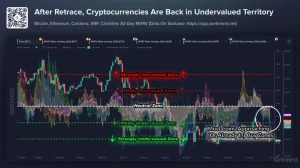Regulation, Not Repression: Why Nigeria Must Rein In Crypto To Protect Its Financial Future

As Nigeria’s cryptocurrency market expands at an unprecedented pace, concerns over investor protection and market integrity have taken center stage. Emmanuel Omiwole, Chief Operating Officer of Quidax, a leading African crypto exchange, argues that the future of digital finance in Nigeria depends on effective regulation rather than prohibition. In his view, thoughtful oversight will help filter out fraudulent actors while encouraging legitimate innovation. With millions of Nigerians trading digital assets daily, the government faces a critical decision: whether to shape crypto into a sustainable pillar of financial inclusion or allow unregulated markets to erode public trust.
The Case for Regulatory Clarity
Nigeria remains one of the world’s most vibrant hubs for cryptocurrency adoption, ranking among the top nations in peer-to-peer trading volumes. The growth has been driven by inflationary pressures, limited access to foreign exchange, and a youthful population seeking financial autonomy. However, this enthusiasm has also attracted bad actors—scammers, unlicensed operators, and fraudulent investment schemes that prey on unsuspecting investors.
Emmanuel Omiwole emphasizes that clear regulatory frameworks are not only necessary but overdue. “Regulation helps weed out those who exploit the system,” he notes, adding that legitimate players in the industry have long called for structured oversight. The objective, he explains, is not to stifle innovation but to create a safe, transparent, and accountable environment where crypto can flourish responsibly.
Balancing Innovation and Investor Protection
Nigeria’s relationship with cryptocurrency has been complex. After years of restrictions on banks facilitating crypto transactions, the Central Bank of Nigeria (CBN) recently began relaxing its stance—signaling a shift toward cautious engagement rather than outright prohibition. This evolution, according to Omiwole, demonstrates a growing recognition that digital assets are here to stay.
However, the path forward must balance financial innovation with consumer safety. Without regulatory oversight, the crypto space risks becoming a magnet for money laundering, tax evasion, and pyramid schemes. Conversely, excessive regulation could drive activity underground or push innovators to more accommodating jurisdictions.
To strike this balance, experts recommend policies modeled on global best practices—such as mandatory licensing, anti-money laundering compliance, and consumer dispute resolution mechanisms. These measures can help legitimate operators thrive while deterring criminal activity.
Building Trust Through Compliance
For crypto firms like Quidax, regulatory compliance is not a burden but a strategic advantage. By operating within a clear legal framework, companies can build investor confidence, attract institutional partners, and expand access to capital markets. “Trust is the foundation of any financial system,” Omiwole asserts. “Without it, both investors and businesses lose.”
He advocates for a collaborative model where regulators, industry players, and financial institutions engage constructively to develop coherent standards. This partnership, he says, can bridge the trust deficit that currently limits the mainstream adoption of blockchain technologies in Africa’s largest economy.
The benefits of such collaboration extend beyond crypto. Well-regulated digital finance could help Nigeria improve cross-border payments, enhance remittances, and promote financial inclusion for the unbanked population.
The Cost of Inaction
The absence of regulation poses significant risks to Nigeria’s financial stability. In recent years, thousands of citizens have lost their savings to Ponzi-style crypto schemes disguised as investment platforms. These fraudulent entities exploit the lack of oversight to operate unchecked, undermining the credibility of legitimate exchanges.
Omiwole warns that without firm but fair regulation, these bad actors will continue to erode investor confidence and deter foreign participation. “When rules are unclear, everyone pays the price—users lose money, businesses lose credibility, and the economy loses growth potential,” he cautions.
Furthermore, unregulated crypto activity complicates fiscal policy, as authorities struggle to monitor capital flows or collect taxes from decentralized transactions.
Toward a Sustainable Crypto Economy
For Nigeria to harness the transformative potential of digital finance, it must develop a holistic policy framework that integrates crypto into the broader financial ecosystem. This includes tax policy, consumer protection, anti-fraud enforcement, and public education initiatives.
Omiwole envisions a future where crypto coexists seamlessly with traditional banking and fintech innovation. “We are not competing with the financial system,” he says. “We are complementing it—expanding access, lowering barriers, and empowering people.”
To achieve this, Nigeria’s policymakers must move beyond reactionary measures and embrace evidence-based regulation that supports both innovation and accountability. By doing so, the nation can position itself as a continental leader in digital finance, attracting investment while safeguarding public interest.
Conclusion
Nigeria stands at a pivotal juncture in its financial evolution. The crypto industry offers enormous potential to democratize access to wealth and accelerate technological advancement—but without regulation, it could just as easily amplify systemic risk. As Emmanuel Omiwole and other industry leaders argue, the choice before regulators is not whether to engage, but how to engage.




